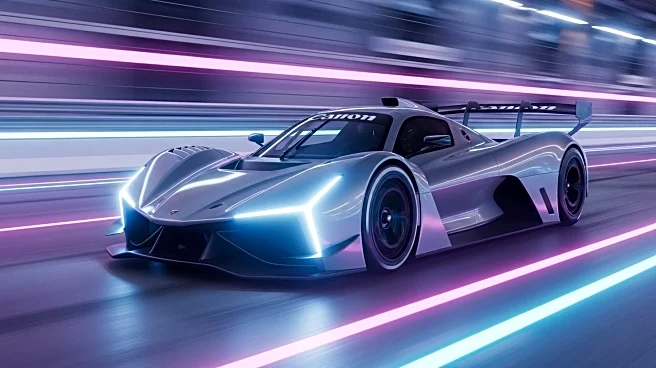What's Happening?
Max Verstappen, currently third in the Formula 1 standings, anticipates a challenging 2026 season due to regulatory changes. Despite Red Bull's past dominance, Verstappen believes Mercedes will lead next year, particularly in engine performance. Red Bull faces risks with new regulations but remains committed to developing a competitive car. Verstappen's recent performances show improvement, but he remains cautious about his chances for the 2025 Drivers' Championship. The team has made adjustments to their car, contributing to better results in recent races.
Why It's Important?
Verstappen's predictions highlight the impact of regulatory changes on Formula 1 teams, potentially altering the competitive landscape. Mercedes's anticipated strength could shift the balance of power, affecting Red Bull's strategy and Verstappen's career prospects. The changes may also influence sponsorships, investments, and technological advancements within the sport. As teams adapt to new regulations, the dynamics of competition could lead to innovative approaches in car design and race strategy.
What's Next?
Red Bull will focus on maximizing their car's performance under the new regulations, aiming to remain competitive against Mercedes. Verstappen's outlook suggests a strategic shift, with Red Bull potentially prioritizing long-term development over immediate results. The upcoming season will test Red Bull's ability to innovate and adapt, with potential implications for driver contracts and team composition. Observers will watch for Red Bull's response to Mercedes's anticipated dominance and how it affects the broader competitive landscape.
Beyond the Headlines
The regulatory changes could lead to a more diverse and competitive field, encouraging teams to explore new technologies and strategies. This shift may also impact the sport's global appeal, attracting new fans and sponsors interested in the evolving dynamics. The focus on engine performance underscores the importance of technological innovation in maintaining competitive advantage, potentially driving advancements in automotive engineering beyond Formula 1.











